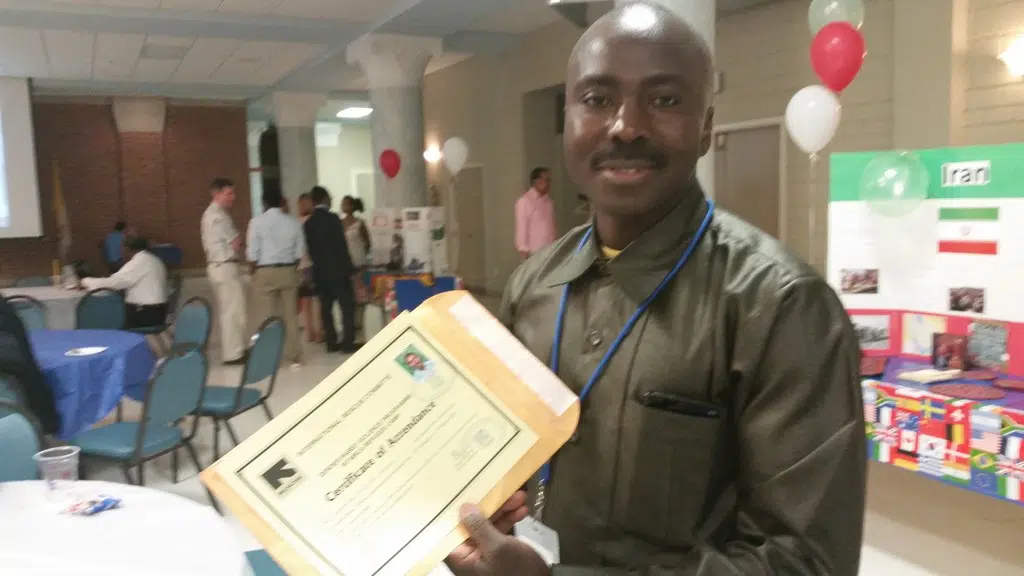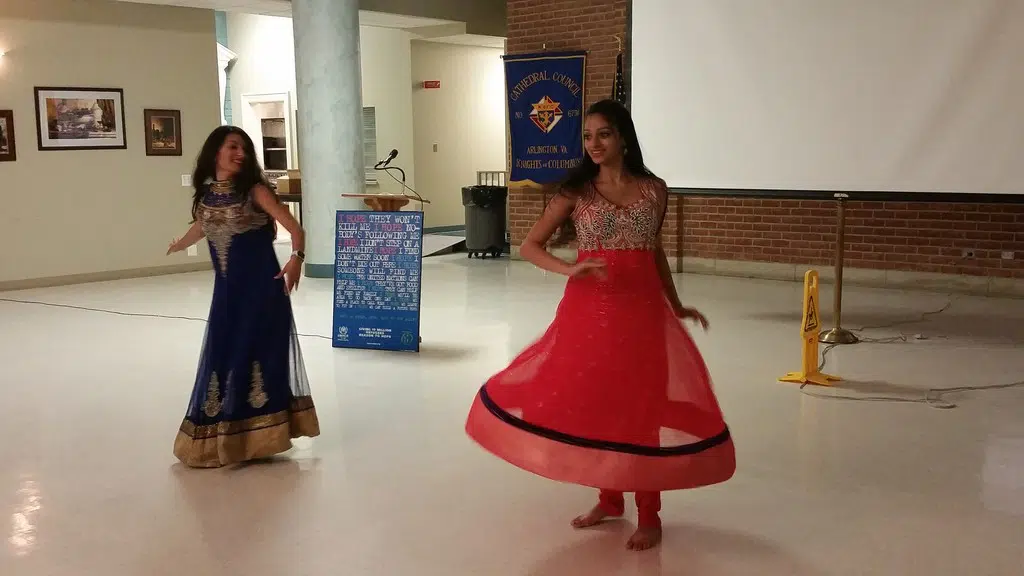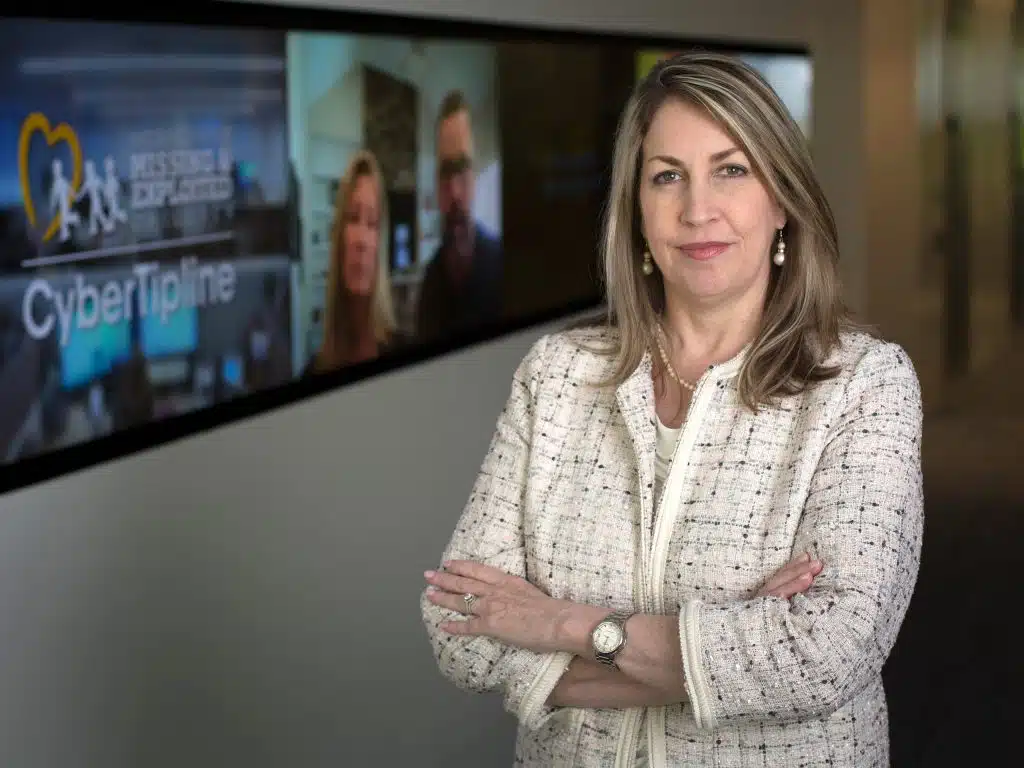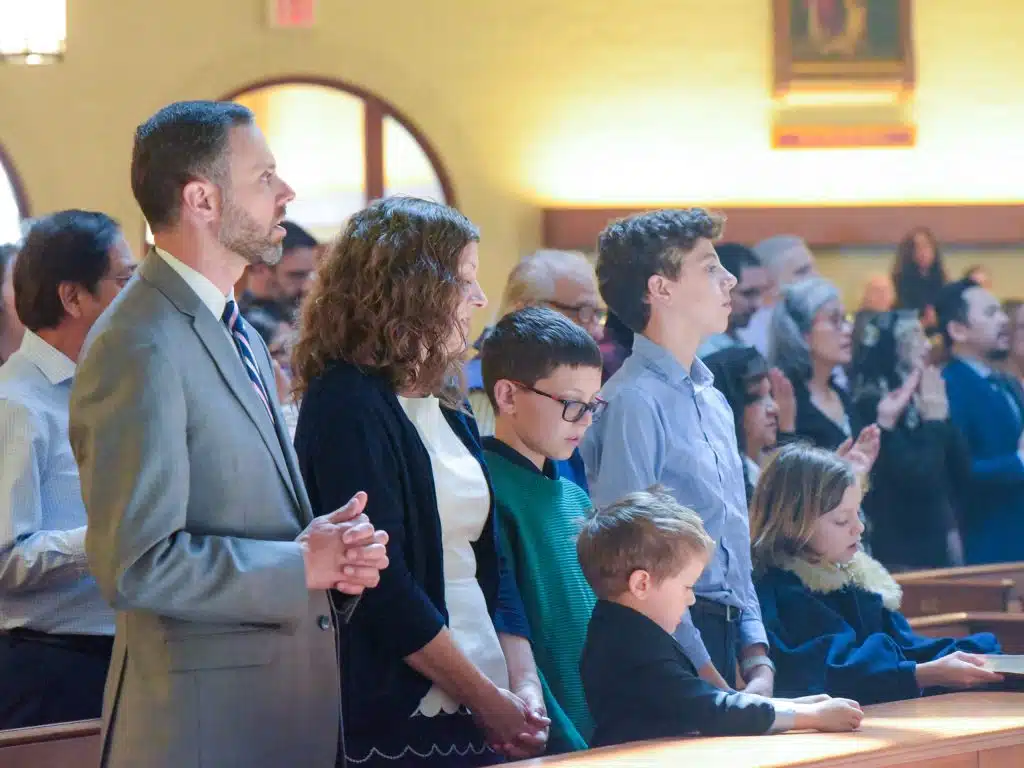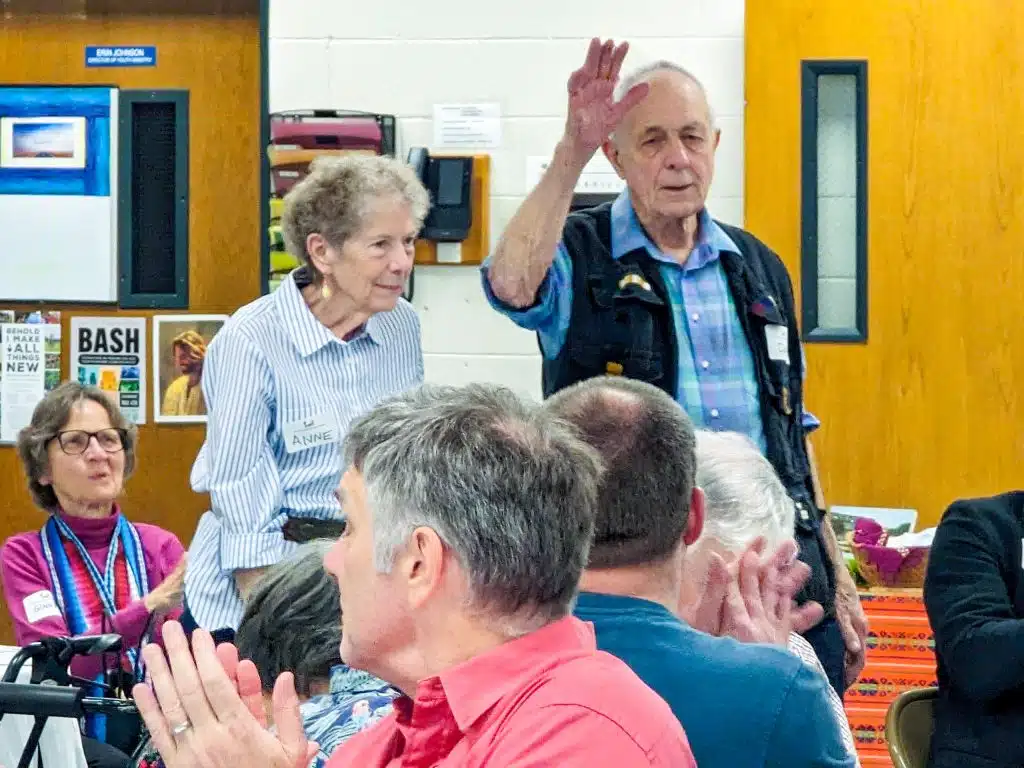In 1972, thousands of families fled the small central African
country of Burundi after government troops responded to a
sectarian rebellion by massacring thousands of civilians.
Nkeshimana Josephat’s parents were among the families that
left the country because of genocidal warfare in 1972. Just a
baby at the time he left Burundi, Josephat spent the next 24
years in refugee camps in Congo – then another 12 years in
Tanzania. After extensive background screenings and biometric
checks performed first by the U.N. refugee agency, and then
the U.S. government, Josephat, his wife and four children
flew to the United States April 2, 2008.
“It’s a miracle,” said Josephat. “I didn’t know where to go”
while in the camp.
Josephat and dozens of other migrants and refugees gathered
for a small celebration in Burke Hall at the Cathedral of St.
Thomas More in Arlington June 21 in honor of World Refugee
Day. Hosted by Catholic Charities’ Office of Migration and
Refugee Services, the annual event aims to educate the
community about the plight of refugees and honor their
success in America. Refugees shared their stories, ate
traditional foods and watched a Bollywood-style dance
performance.
“We see all of the sad things happening on the news every day
and for today … we decided to make it a real
celebration,” said Patricia Maloof, Migration and Refugee
Services director.
Migration and Refugee Services has assisted more than 30,000
individuals, including 23,000 refugees, since it was founded
four decades ago. When Josephat arrived in the country, the
office helped pay for his housing and food for four months,
he said.
He now works full-time landscaping, rides his bike to work,
is a pastor with the Free Methodist Church and said he hopes
to start working to obtain his GED soon.
His relatively newfound stability is all the more poignant
because of the ongoing migrant and refugee crisis. At the end
of 2015, there were 65.3 million people forcibly displaced
worldwide, according to the U.N. refugee agency. Josephat’s
native country,
Burundi, is struggling again following a constitutional
crisis and militia violence. Since last year, more than
250,000 people have fled Burundi, most traveling at night
through forests to avoid militias that hunt down defectors,
according to the U.N. refugee agency. If they make it across
the border to Tanzania – as Josephat’s family did in the
1970s – they arrive at camps that are overcrowded and short
on food.
Life in America is peaceful, but not without its challenges,
Josephat said.
“When we arrived here I (felt) pretty good,” he said. “But it
was very hard, difficult because we started a new life
… I didn’t have anyone, any family here. Catholic
Charities helped teach me.”
